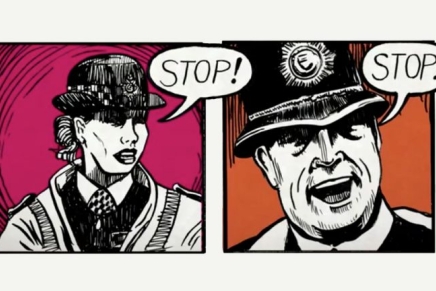
There are moments when the invisible becomes powerfully visible to us all. We know from our work at Just for Kids Law that street violence is part of the lives of the children and young people we work with. They tell us how unsafe they feel in their communities and we often hear from them about stabbings and shootings. Most of the time, it gets little national attention remaining out of sight and out of mind.
It is only when there is a spate of killings that hits the headlines, as has been the case over the last few weeks, that the violence becomes part of the national conversation. Politicians' minds are momentarily focused on the issue. There is a great deal of soul searching. Explanations are sought and solutions offered.
What’s striking about the recent media and public debate is how there hasn’t simply been a rush to condemn and resort to hard law and order crackdowns. Instead there has been a desire to understand and recognise it is complex with no easy solutions. Even the head of the Metropolitan Police’s organised crime command, DCS Michael Gallagher, said his force could not arrest its way out of the problem. In his view radical ‘societal change’ is needed. Launching a new serious violence strategy, the Home Secretary was also more balanced than perhaps expected, stating that investment in prevention and early intervention is crucially important. To me this feels like a welcome shift, recognising the limitations of what a criminal justice response can achieve to tackling serious violence.
Young people involved in knife and gun crime have often been victims themselves of violence in the home or amongst their peers. They are also often coerced into getting involved in the illegal drugs trade. And if they aren’t coerced it’s seen as the best opportunity for them to get on – far more lucrative than a job in MacDonald’s or stacking shelves in the local supermarket.
There are no magic bullet solutions. But we know at Just for Kids Law that there are some simple things that can be done which are informed by the young people affected. Firstly, stop and search needs to be conducted in a rights-respecting way. Young people have told us that officers don’t always follow the rules when carrying out searches. The police, the Home Office and the Mayor for London could promote our video that explains young people’s rights. It would send a powerful message that they understand what young people want.
It’s also crucial that stop and search is intelligence led and only carried out in line with operational objectives. When Home Secretary, Theresa May raised concern about the overuse of stop and search and the disproportionate way it was used on people from minority groups and she was right to do so. We won’t be able to tackle violent crime if trust in the police is further eroded.
Secondly children involved in so called ‘county lines’ drugs activity should be first and foremost seen as victims rather than perpetrators. Criminal justice professionals need to recognise the importance of the Modern Slavery Act and not seek to prosecute cases that are clearly about abuse and trafficking instead ensuring children’s social services provide a child protection response.
And finally if young people are, in the words of the Home Secretary, to be ‘stopped from picking up knives in the first place’ then councils need to have the means to invest in programmes and activities that will genuinely make a difference. Sustained long term investment does make a difference. It is no coincidence, for example, that the teenage pregnancy rate was dramatically reduced after a long term central government programme to address it.
Perhaps most importantly of all, those in power should commit to not forgetting about the children and young people involved and affected by the violence and be proactive in listening to their concerns and views about what needs to change. Addressing these should be a long term priority so their lives don’t only become visible when the stabbings and shootings hit the news.
Enver Solomon is CEO of Just for Kids Law.
